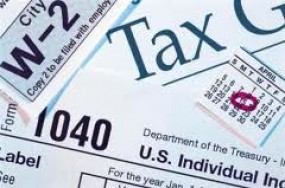Condo foreclosures are tricky little devils to handle.
There is a high potential for lawsuits, in addition to the main lawsuit, which is the foreclosure. That’s because condo associations want the dues to be paid during the foreclosure and will file a lawsuit if the owner doesn’t pay. Also, if contents insurance is cancelled during a foreclosure and there is a leak or water problem that affects another unit, then your neighbor or the association may file suit against you for the water damage. Without insurance coverage, you can get dinged for the damage to your neighbor’s place.
I always recommend that clients continue to pay the association dues until the end of the foreclosure. The association may try to charge you a foreclosure monitoring fee, but it’s usually only $200 or so and you are better off paying that, than refusing to pay it. Refusing to pay it will just mean that the amount will balloon from $200 to $1200 after costs and attorney’s fees are added. It’s just not worth fighting.
Utilities have to be paid until the end of a condo foreclosure. Clients who walk away from condos get really mad when they call the village to shut off the water and are told that it can’t be turned off until the property is transferred to the new owner. The same is true of water and gas service. The utility companies will not take service out of your name until a new owner takes over.
There is precious little information online concerning sheriff’s sale, but generally the owner is mailed notice of the sheriff’s sale, so he or she know when it happens. Clients often expect that they will be mailed a copy of the sheriff’s sale deed that puts the lender in title, but it is not sent to the owner. The best way to check if the sheriff’s sale has happened is to check for a completed sale on one of these sites or to wait until you get the motion to confirm the sheriff’s sale and use that as evidence that it actually happened. (Note: A certificate of sale is issued at the sheriff’s sale, but the sheriff’s deed is issued after the sheriff’s sale is confirmed in court about 30 days later.) Most associations and utility companies will not distinguish between the sheriff’s sale date and the confirmation of the sale in court. Technically, the title doesn’t transfer until the sale is confirmed in court. I’ll leave that fine point up to you:)
After the sheriff’s sale you should do the following:
1. Write a letter to the utilities telling them the date of the sheriff’s sale. Tell them to take the utilities out of your name and to close the account.
2. Write a letter to your association telling them the sheriff’s sale occurred. Sure you can try to prorate the dues and pay through the actual date of the sheriff’s sale, but let’s not be Mr. Precision here. It’s best to pay through the confirmation of the sheriff’s sale to avoid problems.
3. Cancel contents insurance. Call your agent and cancel the contents insurance.
4. Arrange a cash for keys. If you are still living in the unit, contact the lender’s attorney and ask for the name of the real estate agent handling your case and politely ask for relocation assistance and you may get $1,000 to $2,000 to help set up your new place.




